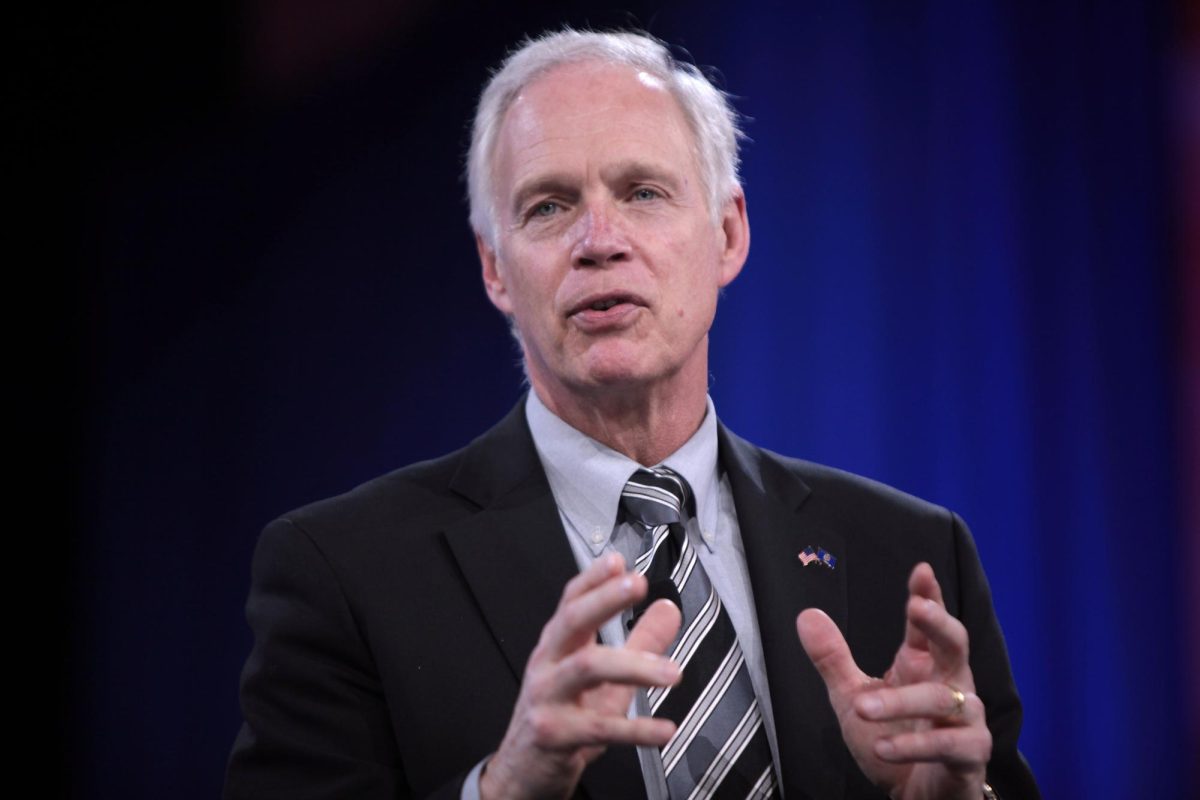Sen. Tammy Baldwin, Sen. Patty Murray and Congressman Mark Pocan reintroduced the Tyler Clementi Higher Education Anti-Harassment Act on March 18 according to a press release from Baldwin’s press team.
The press release states the Tyler Clementi Higher Education Anti-Harassment Act of 2015 will require colleges and universities to prohibit harassment through new policies and support campus anti-harassment programs with a grant program, including prevention, counseling and training.
According to the press release, the act is in honor of Tyler Clementi, a freshman at Rutgers University, who died by suicide in 2010 after he was cyberbullied by his roommate and other students.
“No student should have to live in fear of being who they are,” Baldwin stated in her press release. “Our schools should not be, and cannot be, a place of discrimination, harassment, bullying, intimidation or violence.”
According to Murray in Baldwin’s press release, LGBT students are a targeted audience.
“LGBT students are more likely to be harassed in school, yet there is no federal requirement for colleges and universities to protect their students from discrimination based on sexual orientation or gender identity,” Murray states in the press release.
The press release states the act aims to prohibit harassment across many different areas.
“[The act] requires institutions of high education to establish policies to prohibit harassment based on actual or perceived race, color, national origin, sex, disability, sexual orientation, gender identity or religion,” the press release states.
Baldwin’s press release states there is hope to decrease face-to-face harassment and harassment though electronic communication.
According to the press release, there is also a grant program included in the act to implement a program to support campus anti-harrassment activities.
“The bill also established a grant program to support campus anti-harassment activities and programs,” the press release states.
The press release states the bill’s grant program will initiate, improve or expand programs at institutions relating to anti-harassment policies.
According to the press release, the grant program would have three focuses: the prevention of harassment, counseling and services to those who have been harassed and those doing the harassing and training campus members to prevent and stop harassment.
According to the press release, the grant program is acompetitive, and universities would have to apply to receive funds.
“Schools that already have programs would be eligible to apply and use those funds to improve or expand their efforts,” the press release states.
The secretary of education will review the applications, select the institutions to receive funding, evaluating the effectiveness of the programs later on according to the legislation.
“[The secretary shall] publish a report of best practices for combating harassment at institutions of higher education,” the act states. “The report shall be made available to all institutions of higher education and other interested parties.”
According to Assistant Dean of Students Terri Gohmann, the UW System currently has numerous harassment policies in place.
“Chapter [University of Wisconsin System] 17 is Student Nonacademic Disciplinary Procedures as opposed to academic, like academic misconduct,” Gohmann said. “Nonacademic has to do with behavioral standards.”
The UWS 17.09 states there are many nonacademic misconducts subject to disciplinary actions including dangerous conduct, stalking, harassment, disruption of university-authorized activities and many more.
“These are different kinds of things that could address different types of harassment or bullying,” Grohmann said. “It really depends upon what the specific situation is as to which policies would apply.”
Grohmann said chapter UWS 18 covers conduct that occurs on university property.
“That could be anybody on university lands,” Grohmann said. “It could be a faculty member [or] it could be a guest.”
The chapter states offenses against public safety, such as assaultive behavior and offenses against public peace and order, such as disorderly conduct the chapter stated.
“It could be engaging in violent, abusive, indecent, profane, boisterous, unreasonably loud [or] otherwise disorderly conduct,” Grohmann said.
According to Grohmann, the University also has a policy regarding racist and discriminatory conduct and one regarding computing resources policy, which is also somewhat discussed in the Tyler Clementi act.
“A number of things that are actually proposed in this act are things that we are already doing,” Grohmann said.
Grohmann said the act might not significantly affect UWO.
“In that respect, I don’t think that the passage of this proposed act would have a big impact on UW Oshkosh doing things vastly differently than what we are already doing,” Grohmann said.
Kathleen Mueske, UW Oshkosh counseling center associate director, said she thinks Baldwin’s legislation would be great for our campus.
“If you can imagine the far-reaching effects of being called derogatory names [and/or] being the subject of harassment in one’s living environment or campus community – such legislation would be a welcome addition,” Mueske said.
Mueske said the legislation would be a great way to add more programs for anti-harassment.
“We would welcome having additional funds in place to increase resources and services for harassment prevention and/or those who have experienced harassment, “ Mueske said.
Mueske also said UWO currently has programs in place to help prevent harassment.
“We have [Students, Staff and Faculty for Equality] trainings, sexual harassment trainings, etc.,” Mueske said. “We have a Victim Services Committee that reviews all bias incident reports.”
According to LGBTQ Resource Center Director Liz Cannon, bias incident reports are an initiative through the University to help decrease harassment.
“[Bias incident reporting] is an online reporting form where you can either anonymously report an incident of bias that has either happened to you or that you have witnessed or you can actually, if you want follow-up, you can put names in,” Cannon said.
Cannon said the report is anonymous, and it helps others become aware of areas on campus where harassment is occurring.
“The anonymous reports are important because, if nothing else, it will give us statistics on how often it’s happening and usually in the description, at least locations are talked about, so you know where on campus this is kind of behavior is happening,” Cannon said.
Cannon also said if the Tyler Clementi act is passed it would be another way to show what the LGBTQ Center does.
“I suppose for those of us who are already doing this work, it will give us one more sort of platform on which to rest what it is that we do,” Cannon said.
Cannon also said this act could help the LGBTQ Center reach out to students in another way.
“Especially if you’re trying to talk to students who tend to fall into sort of a bystander position, not knowing whether to support, whether to not, this again gives them something that’s a little more concrete to say ‘well yeah you’re right, there really is a reason I should step up,’” Cannon said.
Cannon said the LGBTQ Center serves as a resource to help students learn and understand other identities that are not their own.
“We are getting more and more professors starting to teach these topics within their curriculum, but still there is a gap,” Cannon said. “So, the research center can step up and fill some of that gap for some of the educational programs.”








